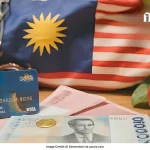As a study abroad student, one of the essential tasks upon arriving in a foreign country is opening an international student account. Having a local bank account not only makes managing finances more convenient but also facilitates seamless transactions and access to various services.
However, the process can be overwhelming, and there are certain do’s and don’ts that international students should keep in mind to ensure a smooth banking experience. Each bank has its own policies but common criteria remain the same. Students must research different banks, consider common student-friendly accounts, and explore online banking services for a better experience.
Additionally, students should not ignore currency conversion rates and banking deadlines. In addition, overseas students must not overlook monthly fees and ignore additional costs and services.
Do’s for International Student Account
- Research Different Banks: Before deciding on a bank, conduct thorough research to compare the services, fees, and benefits offered by various banks. Look for banks that provide special accounts for international students with features like low or no monthly fees, online banking, and international wire transfer options.
- Check Account Requirements: Each bank may have specific requirements for opening an account as an international student. Common documents include a valid passport, student visa, proof of enrollment in a recognized educational institution, and local address verification. Students should ensure that they have all the necessary paperwork before visiting the bank.
- Consider Student-Friendly Accounts: Many banks offer accounts tailored to the needs of international students. These accounts may include benefits such as fee waivers, overdraft protection, and special offers for students. Opt for accounts that cater to students’ financial needs.
- Explore Online Banking: Embrace online banking as it offers convenience and accessibility. With online banking, one can manage her/their/his finances, check balances, transfer funds, and pay bills from the comfort of one’s dorm room or anywhere with an internet connection.
- Notify the Bank About Travel Plans: If one plans to travel during breaks or holidays, inform the bank in advance to prevent any account freezes due to suspicious activity. This proactive step ensures a smooth banking experience while abroad.
- Keep Track of Transactions: Regularly monitor the account transactions to detect any fraudulent activities promptly. Notify the bank immediately if a student notices any suspicious charges or unauthorized access to her/their/his account.
Don’t’s for International Student Account
- Don’t Ignore Currency Conversion Rates: When making international transactions or withdrawing cash abroad, pay attention to currency conversion rates. Avoid using ATMs or services with unfavourable exchange rates to minimize unnecessary fees.
- Don’t Share PINs or Passwords: Never share PINs or online banking passwords with anyone, including friends or acquaintances. Banks will never ask for such information, and keeping it confidential is crucial to protect the account from unauthorized access.
- Don’t Overlook Monthly Fees: Some accounts may have monthly fees that can quickly add up. An international student must understand the fee structure and opt for accounts with minimal or no monthly charges to avoid unnecessary expenses.
- Don’t Neglect Banking Deadlines: If the visa requires a student to open a bank account within a specific timeframe after arriving in the country, make sure to comply with this requirement. Missing deadlines might lead to complications with the visa status.
- Don’t Ignore Additional Services: Some banks offer exclusive services to international students, such as assistance with setting up a credit history or providing financial advice. Take advantage of these resources to improve the financial situation.
- Don’t Forget to Inform Home Bank: Students must Inform their home bank about their international student status and the country they will be studying in. This will help them better assist students with any cross-border transactions or potential issues.
Stay in tune with Fly Finance News Desk to get regular updates on study abroad loans, international student accounts, and overseas money transfers.





























